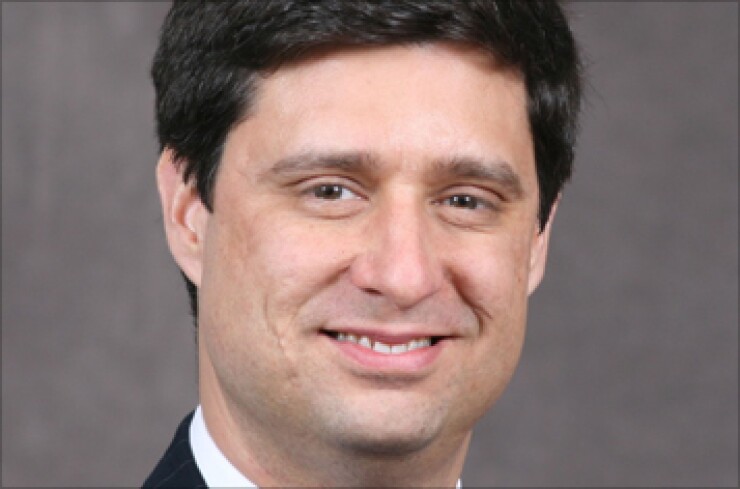
LAS VEGAS - "Don't fear the Fed" and looming interest rate increases, a senior economist at Bank of America Merrill Lynch Global Research told municipal analysts meeting here Wednesday.
The Federal Reserve is likely to begin hiking interest rates at a very slow pace in the final quarter of 2015, presenting little risk to the municipal bond market, said Michael Hanson, presenting his outlook on the economy and its impact on the market at the National Federation of Municipal Analysts' annual conference here.
Hanson, who is responsible for Fed analysis at his bank, said he expects the Fed to begin raising rates at a rate of 0.25% every other meeting beginning in September and to shift its reinvestment strategy in early 2016.
The Fed has been holding interest rates at extremely low levels for several years now, and some market observers have warned of a potential liquidity problem in the fixed-income markets when the central bank stops holding rates at artificially low levels.
"They're going to go very slow," Hanson said, adding that the Fed is now much more communicative about its intentions than it has been historically. The past perception of a central bank's job was that policy changes should "shock" the market, he said, but now the emphasis is on communication in an effort to nudge the market into doing the work itself.
"Back in 1994, you didn't even get a press statement after a meeting," he said.
Hanson said that while there is a chance the market could misread the Fed's intentions and present some volatility when policy shifts, he does not expect the kind of sharp reaction that occurred during such shifts in the mid-1990s.
"The bottom line here is: Don't fear the Fed," Hanson said.
He added that he is relatively upbeat about the overall economy, and expects a modest 2nd quarter rebound followed by a better than 3% gross domestic product growth rate in the second half of the year. While Congress remains divided, he added, there is no longer the "budget brinkmanship" that persistently damaged the U.S. economy over the last several years, Hanson said.
"It is a better environment than it was a few years ago, and that should be a net positive," he said.
Jeffrey Burger, a senior fixed income portfolio manager at Standish Mellon Asset Management, said during a later panel discussion that municipal bonds have historically exhibited less interest rate sensitivity than many other financial products because it is a more buy-and-hold market than most others and because the tax-exemption is attractive. Intermediate duration bonds could be especially well-positioned, he said.
"A good place to be would be intermediate municipals," Burger said.
An analyst attending the meeting said there appears to be at least some doubt that the Fed will act or will act even more slowly than it seems to be indicating.
Burger warned that there is the possibility of a blow to the market if inflation exceeds the very low expectations of most economists, but said the chance of that seems fairly small. Another threat could be a change of sentiment about munis if there is some kind of regulatory or legislative change to the landscape, such as a tax reform change to the tax exemption, he added.
The NFMA conference continues through Friday.





